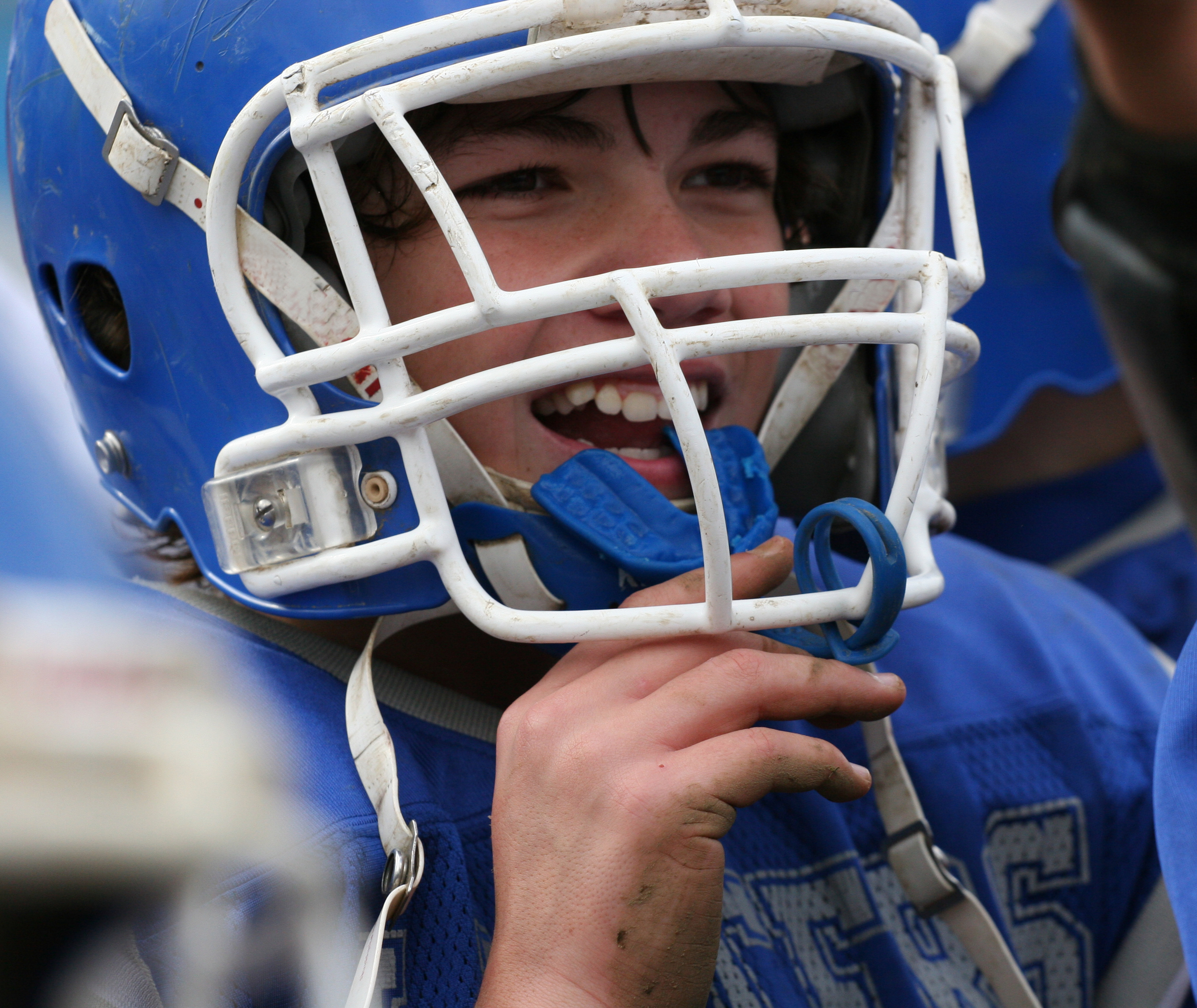DOES MY CHILD NEED A MOUTHGUARD?
Yes! Children should wear mouthguards when playing any type of contact sport (football, hockey, boxing), non-contact sports (softball, baseball, soccer), or recreational activity (skateboarding, mountain biking). The mouth guard will protect your child’s soft tissue, tongue and lips and reduce the risk chipping or breaking teeth during these activities.
Usually a mouthguard covers only the top teeth, but some athletes also need a lower guard when a dental appliance or braces are in place. A properly fitted mouthguard will protect brackets should you child get hit in the face. A guard will also keep braces from injuring gums and cheeks.
There are several different kinds of mouthguards available. Here’s a list of options.
Custom-made — Your pediatric dentist will make an impression of your child’s mouth, then send it off to a lab for a custom guard. They are more expensive than the other versions because they are individually created for fit and comfort.
Boil and bite — You can by these mouth protectors at many sporting goods stores and drugstores. They may offer a better fit than stock mouth protectors. They are first softened in water (boiled), then inserted and allowed to adapt to the shape of your child’s mouth. Always follow the manufacturer’s instructions.
CustMbite MVP and CustMbite Pro are boil and bite mouthguards that have earned the American Dental Association’s Seal of Acceptance.
Stock — These are inexpensive and come preformed, ready to wear. Unfortunately, they often don’t fit very well. They can be bulky and can make breathing and talking difficult.
Once your child has his mouthguard, encourage him to wear it for games, practice, and
scrimmages. Show him how to care for his mouthguard by following these tips:
- Rinse it before and after he wears it.
- Clean it regularly with cool water and soap.
- Store it in a sturdy container with vents to keep it dry and germ-free.
Ask your pediatric dentist to check the mouthguard at regular checkups. Your dentist will let you know when it’s time to replace it due to wear or changes and growth in your child’s mouth.
Don’t wait until it’s too late. Talk to your pediatric dentist about a mouthguard today.

